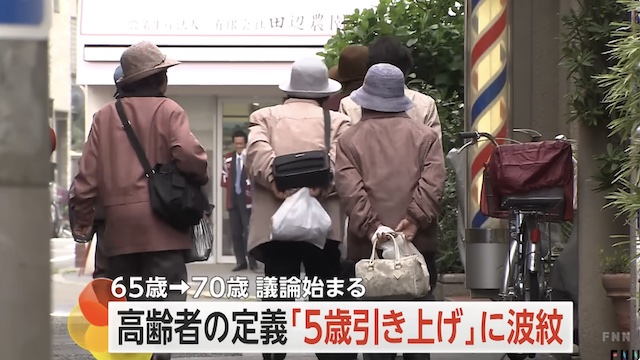TOKYO, May 24 (News On Japan) - The Japanese government is considering raising the definition of elderly by five years, from 65 to 70, in light of increasing healthy life expectancy. Currently, the definition of elderly starts at 65, but raising it to 70 has people on the street fuming.

A person in their 40s said, 'I think it's outrageous. How long do we have to work? (Pensions) might also get delayed to 70, and there's a worry that it could eventually be pushed to 75.'
A person in their 70s commented, 'Ultimately, this is about delaying pensions and lowering their value. I think these will happen simultaneously. I don't find it desirable.'
On the other hand, some people see no issue with the change.
A person in their 50s remarked, 'I think it's fine, 70 is a reasonable age not to be considered elderly. If you're healthy, you can go on until around 70.'
The discussion was sparked by the Economic and Fiscal Policy Council meeting held by the government on the 23rd.
During the meeting, private sector members pointed out that the definition of elderly should be extended by five years to address lifelong activity and the declining birthrate.
In response to the suggestion, Minister Yoshitaka Shindo commented at a press conference.
Yoshitaka Shindo, Minister of Economic Revitalization, stated, 'As we face a declining population, it's crucial to create an environment where people can remain active throughout their lives and increase the number of such individuals.'
Prime Minister Fumio Kishida also emphasized during the meeting, 'We must realize a society with high well-being, where everyone can actively participate.'
Source: FNN














